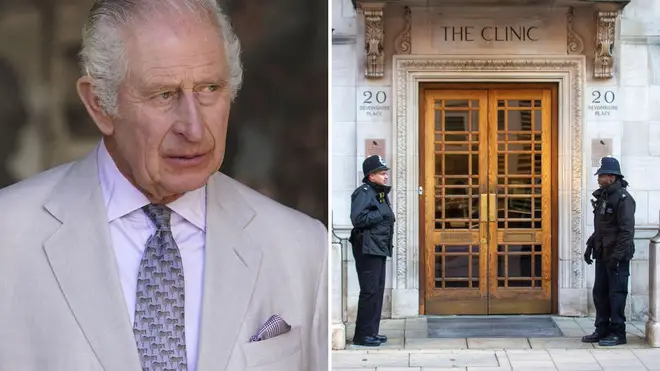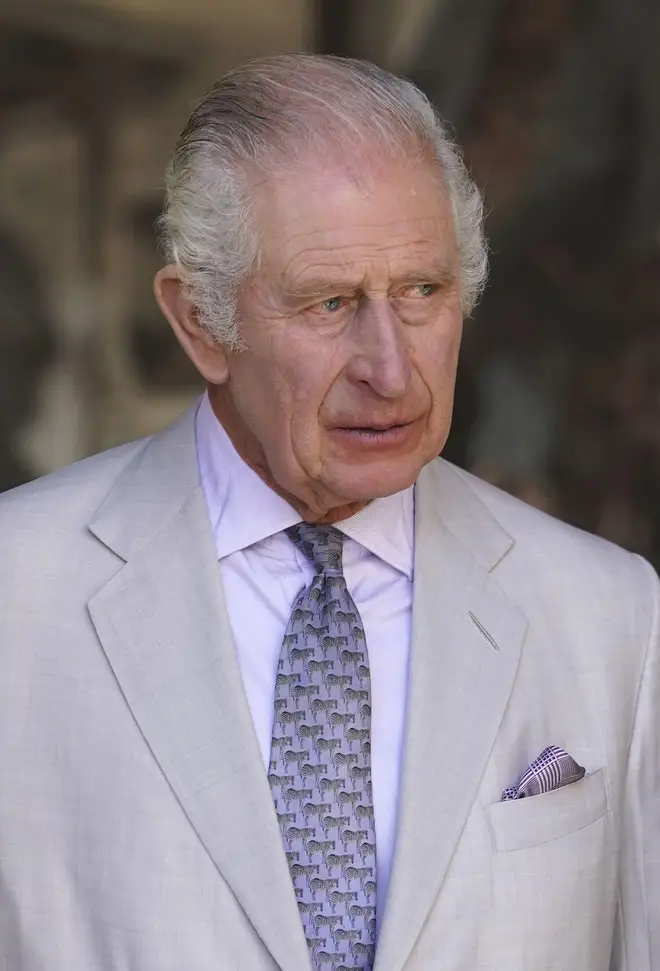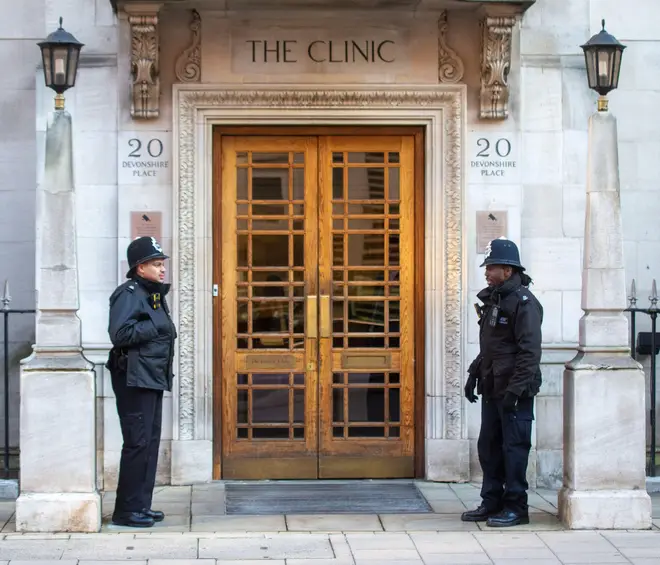
Shelagh Fogarty 1pm - 4pm
26 January 2024, 11:17

King Charles has arrived at hospital for treatment on his enlarged prostate.
The monarch has used his condition to raise awareness among men, which was partly why he has been so public about it.
Searches about prostate conditions have spiked since he revealed he would need treatment.
The prostate is a small gland found in men. It produces a fluid that mixes with sperm to produce semen.
It's usually shaped about the size of a walnut but it gets can get bigger as men age.
Enlargement is a common condition, with symptoms affecting more than a third of men aged over 50.
Experts don't know for sure why it gets bigger, but it is not caused by cancer and it won't affect a patient's chances of getting it.
Read more: King Charles and Queen Camilla arrive at hospital ahead of his prostate treatment

According to the NHS, signs include difficulty starting or stopping urinating, a weak flow of urine, straining while peeing or feeling like you are not able to fully empty your bladder.
Prolonged dribbling after finishing urinating, needing to urinate more frequently and having to regularly get up at night to go to the toilet are also symptoms.
Symptoms can be alleviated by reducing alcohol, tea and coffee consumption before going to bed, while medicine is available to reduce its size.

Alpha blockers, anticholinergics and diuretics are among the medicines that can be prescribed.
Changes to your lifestyle, like ensuring your bladder is definitely empty, eating more fibre and training your bladder are all options.
A catheter could be installed if a patient struggles to urinate and surgery is unsuitable.
Otherwise, a man may need to go under the knife - though most don't need to resort to it.
In severe cases, where medicine does not help, the inner part of the prostate may be surgically removed.
Few details about what King Charles's treatment will entail have been revealed.
He has gone to the London Clinic for the treatment - the same place where Kate is staying after abdominal surgery.
It is unknown how long he will need to be in hospital.